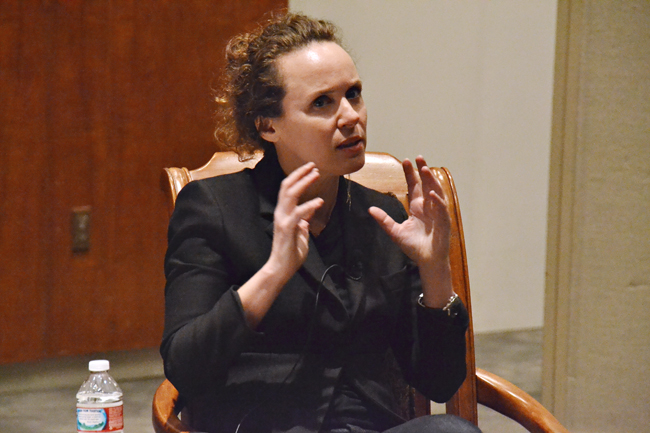In a presentation at the LBJ School of Public Affairs on Monday, journalist and author Nina Munk said she is in favor of foreign aid for the developing world, but only if it is spent wisely.
Munk spoke about her book, “The Idealist: Jeffery Sachs and the Quest to End Poverty,” which is a profile of Jeffrey Sachs, an economist and special adviser to the Secretary-General of the United Nations and author of “The End of Poverty.”
Sachs’ work in the rural areas of Africa included launching the Millennium Villages Project, a five-year initiative to test his theories for combating poverty.
Munk said many areas in Africa rely heavily on international aid, which was provided through the project.
“Anyone who’s been to rural Africa has seen what I have seen.” Munk said. “These people are alive because of foreign aid.”
Munk said it was difficult to collect base data in the rural African villages, which led to skepticism from academics.
“Many reports have had to be retracted because of lack of good data,” Munk said. “Almost no one in academia embraced this project and held it up as an example worth following, largely because of these problems with the data.”
Anna Scanlon, an international relations and global studies and government junior and a research assistant with UT Innovations for Peace and Development, said the methodology of the project was flawed.
“Munk admitted during the Q-and-A that some of these villages are located in highly remote areas lacking any formal governance mechanism and are highly unlikely to ever develop any sort of industry, sustainable agricultural sector, etc.,” Scanlon said.
Scanlon also said it’s important for the American public to understand that foreign aid is an incredibly complex issue.
Taking place in an almost full auditorium, the event attracted a variety of students. Rahima Housaini, global policy studies graduate student, said she came to learn strategies for combating poverty in Afghanistan.
“I’m from Pakistan and want to see how it could relate to current development activities in Afghanistan,” Housaini said.
Munk said the book was not what she was expecting when she first began writing.
“I wanted it to have a hopeful ending. … Who doesn’t want to believe poverty can be ended?” Munk said. “I was either naive or hopeful enough to think that Jeff Sachs could pull this off.”




















